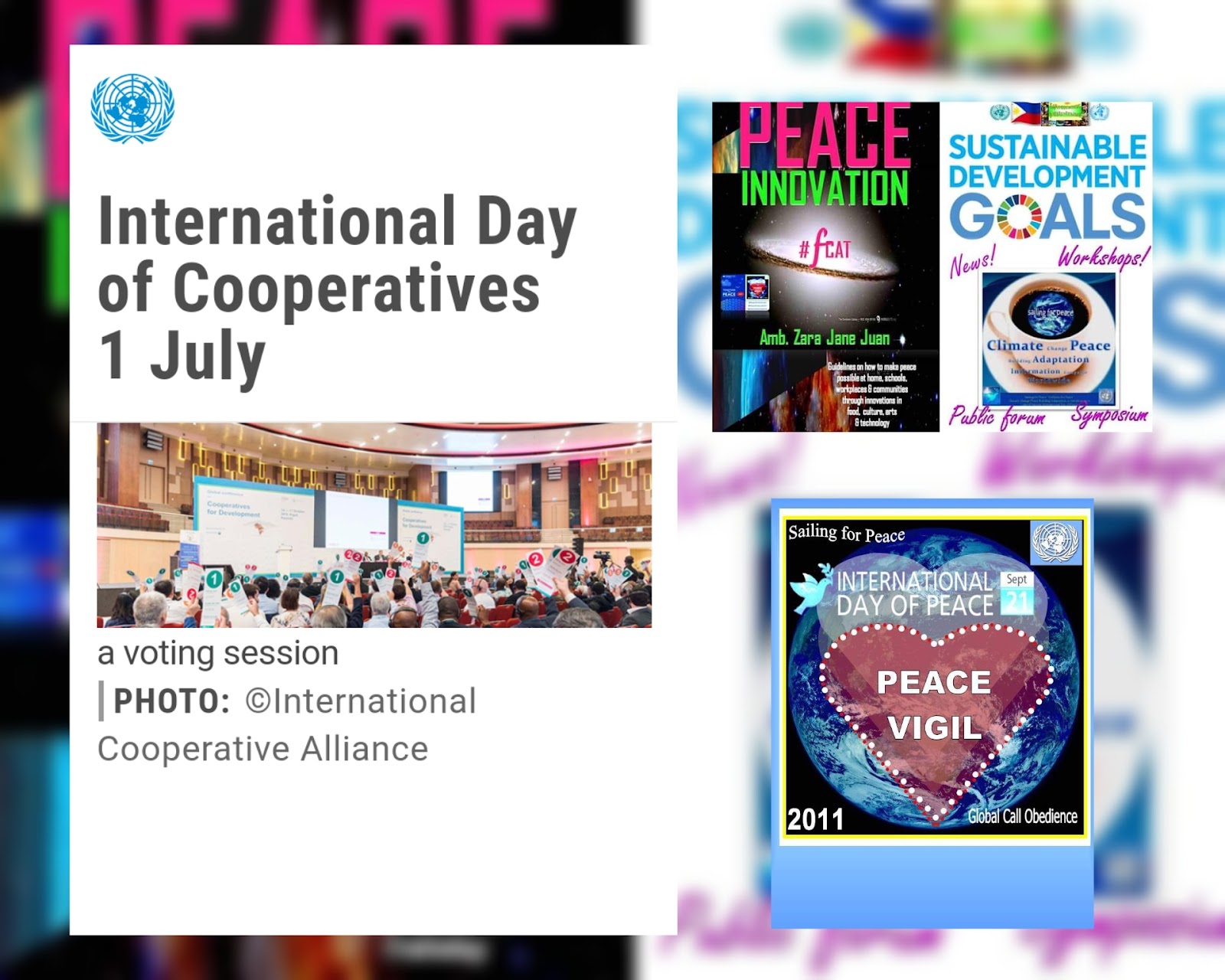Cooperatives Build a Better World
On July 1, cooperatives all around the world will celebrate the 100th International Day of Cooperatives (#CoopsDay). A decade on from the UN International Year of Cooperatives, which showcased the unique contribution of cooperatives to making the world a better place, this year’s #CoopsDay slogan — “Cooperatives Build a Better World”— echoes the theme of the International Year.
Operating all around the world, in many different sectors of economy, cooperatives have proven themselves more resilient to crises than the average. They foster economic participation, fight against environmental degradation and climate change, generate good jobs, contribute to food security, keep financial capital within local communities, build ethical value chains, and, by improving people’s material conditions and security, contribute to positive peace.

Brief History
The earliest record of a co-operative comes from Scotland in March 14 1761. In 1844 a group of 28 artisans working in the cotton mills in north of England established the first modern co-operative business.
Background
The Co-operatives Movement
Co-operatives have been acknowledged as associations and enterprises through which citizens can effectively improve their lives while contributing to the economic, social, cultural and political advancement of their community and nation. The co-operative movement has been also recognized as a distinct and major stakeholder in both national and international affairs.
Co-operatives' open membership model affords access to wealth creation and poverty elimination. This results from the co-operative principle of members' economic participation: 'Members contribute equitably to, and democratically control, the capital of their co-operative.' Because co-operatives are people-centred, not capital-centred , they do not perpetuate, nor accelerate capital concentration and they distribute wealth in a more fair way.
Co-operatives also foster external equality. As they are community-based, they are committed to the sustainable development of their communities - environmentally, socially and economically. This commitment can be seen in their support for community activities, local sourcing of supplies to benefit the local economy, and in decision-making that considers the impact on their communities.
Despite their local community focus, co-operatives also aspire to bring the benefits of their economic and social model to all people in the world. Globalization should be governed by a set of values such as those of the co-operative movement; otherwise, it creates more inequality and excesses that render it unsustainable.
The cooperative movement is highly democratic, locally autonomous, but internationally integrated, and a form of organization of associations and enterprises whereby citizens themselves rely on self-help and their own responsibility to meet goals that include not only economic, but also social and environmental objectives, such as overcoming poverty, securing productive employment and encouraging social integration.
Facts & Figures
- More than 12% of humanity is part of any of the 3 million cooperatives in the world;
- The largest 300 cooperatives and mutuals report a total turnover of 2,034.98 billion USD;
- Cooperatives employ 280 million people across the globe (10% of the world’s employed population).
Source: World Cooperative Monitor 2020
Events
Hundreds of cooperative events occur annually around the world. Check map of the events!
Resources
Documents
- General Assembly resolution: First International Day of Cooperatives
- General Assembly resolution: International Day of Cooperatives
- ILO Recommendation 193 on the Promotion of Cooperatives, 2002
- UN Guidelines aimed at creating a supportive environment for the development of cooperatives, 2001
UN System
- International Fund for Agricultural Development (IFAD)
- Committee for the Promotion and Advancement of Cooperatives (COPAC)
- International Labour Organization (ILO)
- Food and Agriculture Organization (FAO)
- 2012 - International Year of Cooperatives
Additional Resources
The International Cooperative Alliance unites, represents and serves cooperatives worldwide. Founded in 1895, it is one of the oldest non-governmental organizations and one of the largest ones measured by the number of people represented: 1,2 billion cooperative members on the planet. The Alliance works with global and regional governments and organizations to create the legislative environments that allow cooperatives to form and grow. More>>
- Voluntary and Open Membership
- Democratic Member Control
- Member Economic Participation
- Autonomy and Independence
- Education, Training, and Information
- Cooperation among Cooperatives
- Concern for Community
International days and weeks are occasions to educate the public on issues of concern, to mobilize political will and resources to address global problems, and to celebrate and reinforce achievements of humanity. The existence of international days predates the establishment of the United Nations, but the UN has embraced them as a powerful advocacy tool. We also mark other UN observances.





